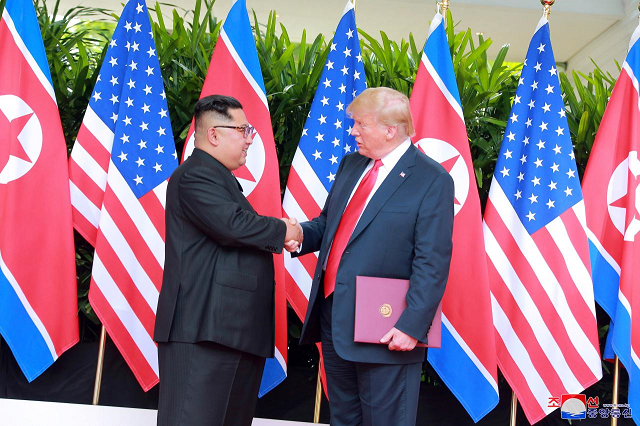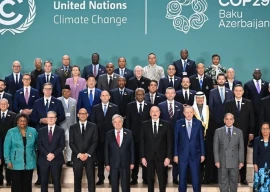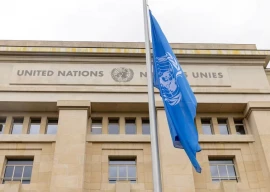
US President Donald Trump and North Korean leader Kim Jong Un issued a joint statement after their historic meeting in Singapore in June that reaffirmed the North’s commitment to “work toward complete denuclearisation of the Korean Peninsula” and gave US guarantees of security to North Korea.
Conflicting or vague views of what exactly “denuclearisation” means, however, have complicated negotiations that now appear stalled.
Thursday’s commentary, released by North Korea’s state-run KCNA news agency, is one of the clearest explanations since the June summit of how Pyongyang sees denuclearisation.
“When we refer to the Korean peninsula, the term encompasses the area of DPRK plus South Korean territory where U.S. nuclear weapons and other forms of aggression forces are deployed,” the editorial said, using the initials of North Korea’s official name, the Democratic People’s Republic of Korea.
“When we refer to the ‘denuclearisation of the Korean Peninsula’ as well, it should be correctly understood as removing all nuclear threat factors from not only the North and the South but from all neighboring areas.”
North Korea rejects American calls for it to unilaterally denuclearise, and Washington should abandon the 'delusion' of forcing Pyongyang to abandon its nuclear weapons “via pressure and oppression,” the article said.
North, South Korea agree to pursue joint 2032 Olympic Games bid
The United States has said that it will not lift sanctions on North Korea until more progress has been made toward the verifiable denuclearisation of North Korea.
Washington has also rejected any suggestion that it would reduce its military presence in the region as part of a deal with North Korea, but in a surprise move after the summit, Trump announced that the Pentagon would cancel most of its largest military exercises conducted with the South Koreans.
The exact definition of denuclearisation is likely to be raised again as Trump has said he is working to meet again with Kim sometime early next year.
North Korea says 'completely' dismantled nuclear test site
“It is obvious that denuclearisation of the Korean Peninsula is a joint business that cannot be achieved unless both Korea and the United States strive together,” the KCNA commentary said. “In this sense, the denuclearisation of the Korean Peninsula should be defined as ‘completely eliminating the US nuclear threat to Korea’ before it can eliminate our nuclear deterrent.”
The United States deployed nuclear weapons in South Korea from 1958 to 1991. Since they were withdrawn, the United States has extended its “nuclear umbrella” of support to Japan and South Korea using bombers and submarines based elsewhere.
At a press briefing in Washington on Tuesday, US State Department spokesperson Robert Palladino said he would not “split words” when asked about whether the promise of “denuclearisation of the Korean peninsula” means only North Korea or the broader region.
North Korea criticises 'alarming' US impatience on denuclearisation
“We are focused on the denuclearisation of North Korea,” Palladino said. “We remain confident and we look forward to the commitments that Chairman Kim and that President Trump have made.”

1722586547-0/Untitled-design-(73)1722586547-0-165x106.webp)


1732326457-0/prime-(1)1732326457-0-165x106.webp)


1731325890-0/trump-(24)1731325890-0-270x192.webp)









COMMENTS
Comments are moderated and generally will be posted if they are on-topic and not abusive.
For more information, please see our Comments FAQ